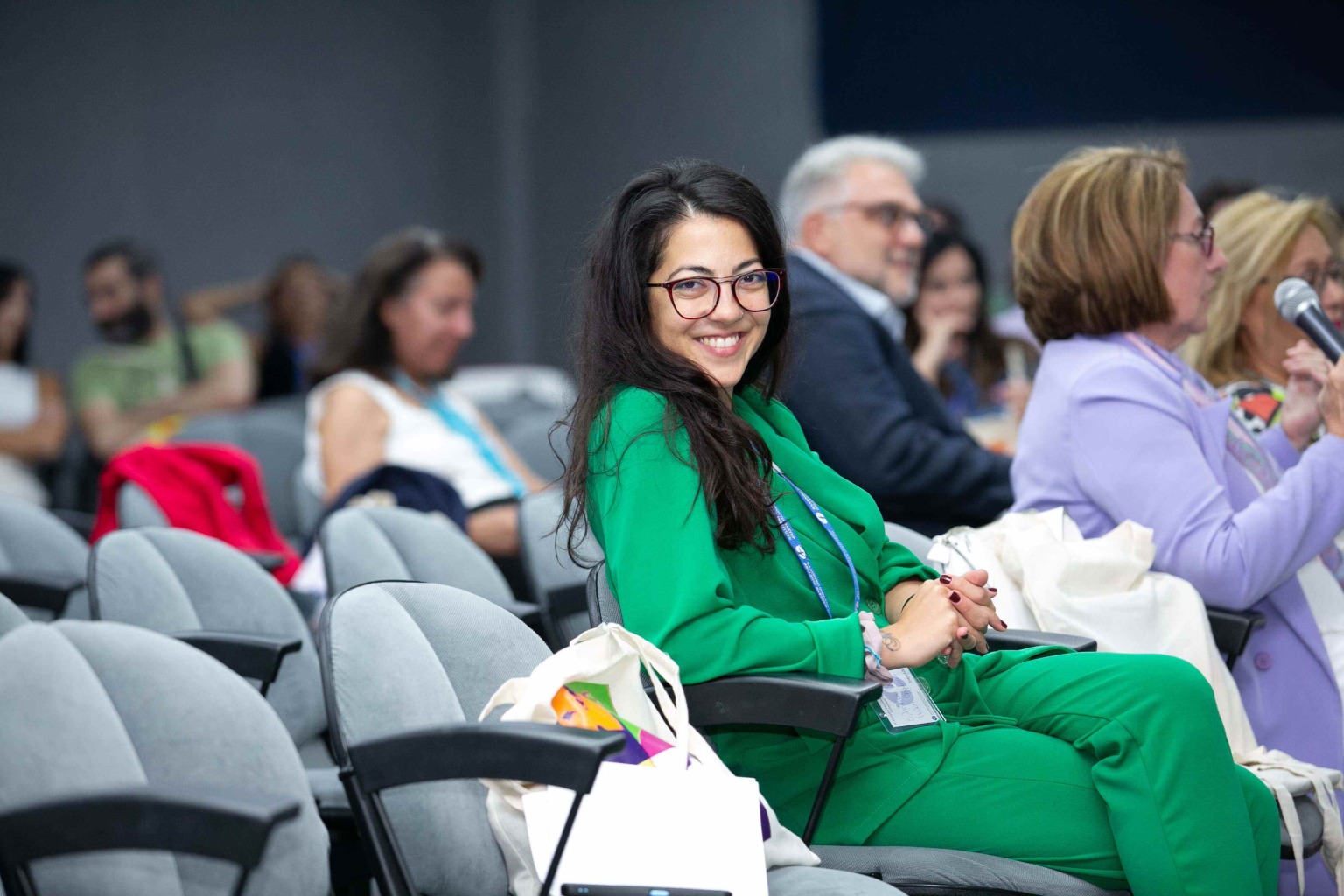
Dr. Elpiniki Ninou: Just like in Theater, Teamwork is the Key to Success in Science!
Niki Michalopoulou
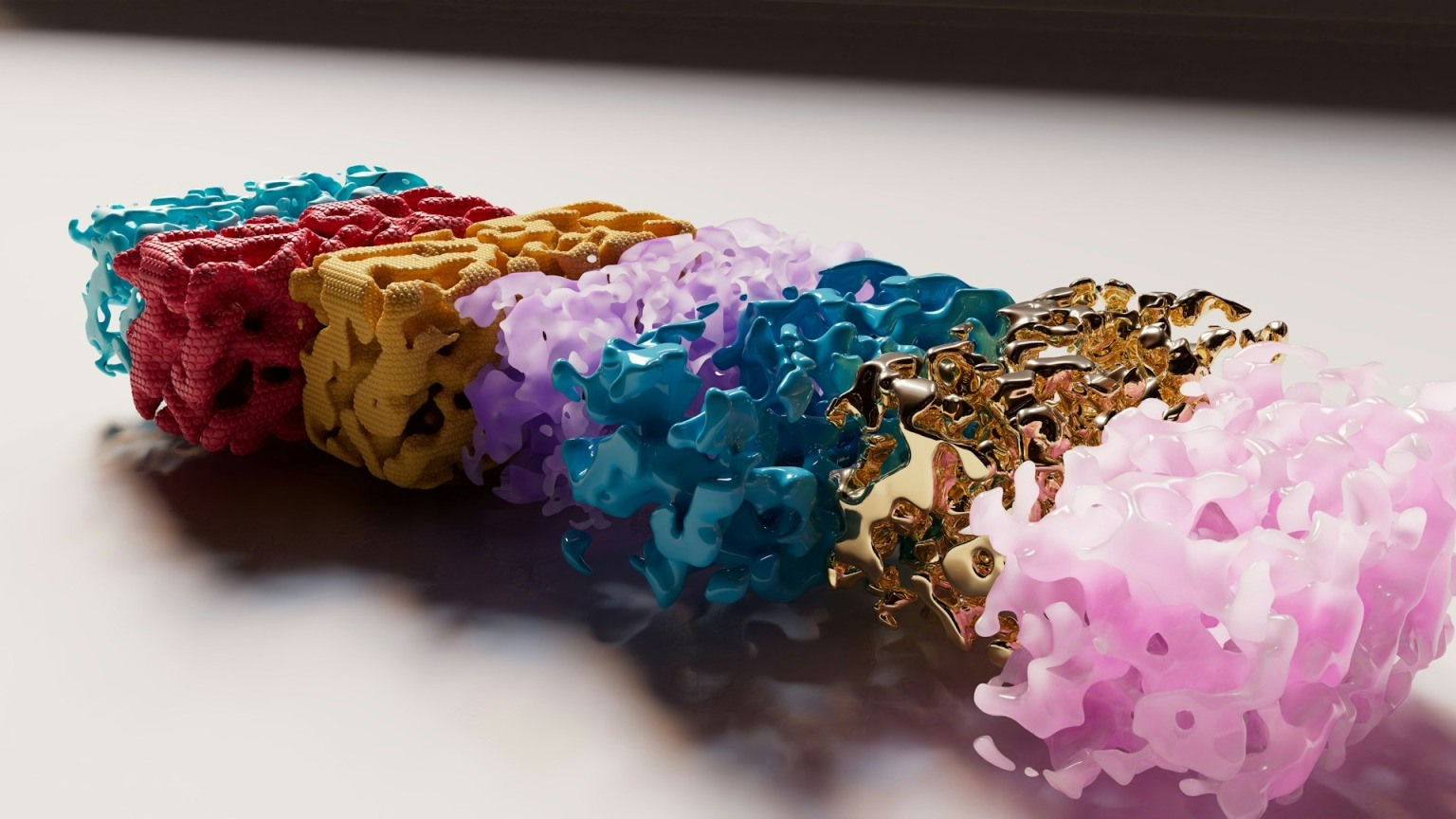
Magazine / Interviews , Engineering
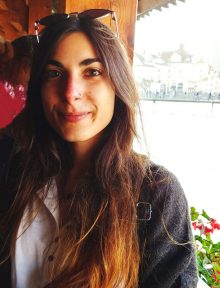
She began her studies at the Department of Chemical Engineering, University of Patras, where she obtained a postgraduate specialization. One of the latest articles she published along with her colleagues is entitled "Comparative Experimental and Molecular Simulation Study of the Entropic Viscoelasticity of End-Linked Polymer Networks". Polymer networks apply in many areas, from everyday-use items like car tires or adhesives used in construction to biomedical devices and the robotics industry. Ioanna talked to Greek Women in STEM and gave us more input about these networks, as well as her life as a doctoral researcher in Zurich and her interests. We are happy to share it with you!
Tell us a bit about the research you carry out.
The aim of my doctoral research is to construct and simulate complex structures of materials capable of absorbing mechanical vibrations that a structure can have in various applications. For example, applications include car or boat parts, a coffee machine as well as applications that require sound insulation. These structures will consist of at least two different materials: at least one stiff material such as metal, glass, or even a composite and one polymer (polymer network). The latter is responsible for absorbing and releasing the energy that causes the vibrations in a structure. For this reason, additional research is being done to find the appropriate for this purpose polymer, both theoretically and experimentally.
What kind of experiments are being done in the polymer industry? What properties do the polymers you study have?
Regarding elastomers, which are the polymers I study, experimental work includes mechanical measurements. These measurements are usually made under steady or dynamic conditions. Steady conditions mainly include experiments with uniaxial or biaxial tension and compression tests. In dynamic conditions, one can measure both the storage modulus and the loss modulus and, consequently, the loss coefficient tanδ. In addition, we can have frequency and temperature scans performed in dynamic shear, tension, and compression. In particular, tanδ is a characteristic used to select a material for vibration-damping applications. Considering my case, for the elastomers on which I focus, we want a high tanδ so that the polymer can absorb and convert the mechanical energies into thermal relaxation of its polymer chains. At the same time, these elastomers should not have a very high storage modulus and be quite elastic (stretchable).
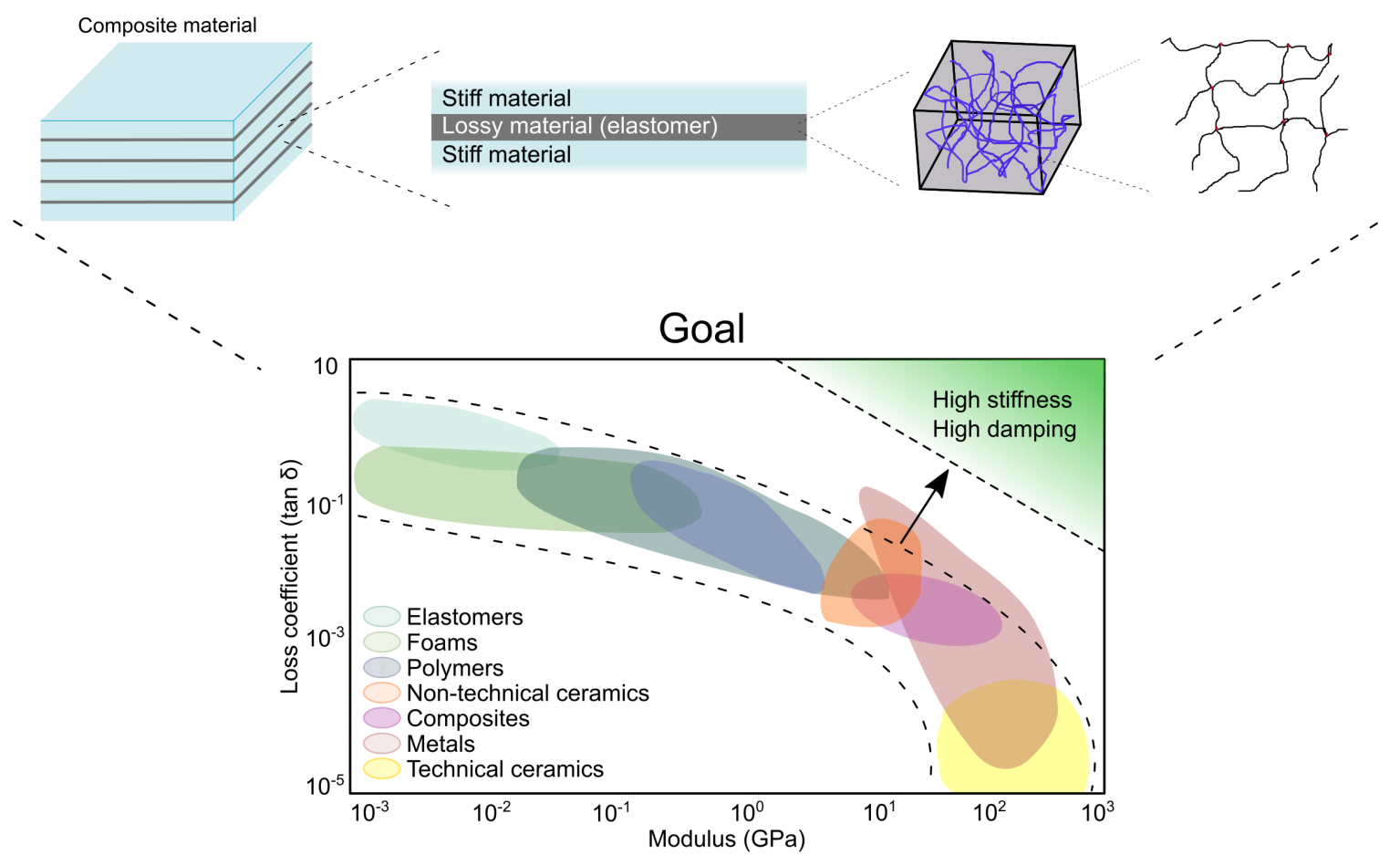
How do you go from theory (model) to practice (experiment)? Do you use a specific programming language for the simulations, and if so which one?
My work is divided into two parts:
The first part concerns exclusively the polymer, which we initially simulate with a Monte Carlo model that is programmed in Matlab. Using this model, we are able to obtain the microstructures of the polymer network and measure its characteristics and topology, while comparing it with existing theory. My colleagues then use these microstructures for molecular dynamics (MD) simulations in the LAMMPS package. In this way, one can predict the equilibrium modulus (approximately equal to the storage modulus) by simulating an uniaxial tension test (for example). The second part concerns the composite material. We first simulate this in COMSOL (a finite difference computational package), in order to find the optimal polymer thickness. With this information and guided by the simulation, we try to construct our complex structure.
How did you start studying this topic?
I have studied polymers in the past and I really liked this field. The truth is that the subject of the doctorate was somewhat far from the experience I had till then, but when I was asked to join the team and work on my current topic I did not hesitate at all. After all, it's nice to change course and learn new things. What fascinates me even more, is that I have the opportunity to deal with theory, simulations, and experiments at the same time. This is very important, especially for me as I had not had the opportunity to know the practical and essential aspects of the materials I had been studying. It is extremely helpful to study and work with all aspects of a subject.
What were the obstacles you had to overcome during your studies?
The decision to leave the security of my home and/or the country was a major concern for me. In addition, the fear of failure held me back. Of course, one of the most important concerns -even today- is what I will do in my life and whether my choices will make me happy. Nevertheless, despite these doubts, even since the undergraduate level, it was clear to me that I wanted to pursue a career in research either academically or not. I enjoyed solving problems and discovering new things. I also really liked being part of a team or an academic environment, so I continued to the doctoral level. I certainly have no regret for this. I have learned a lot during the past two years and I still learn every day.
When you discuss something, even with people who are not related to a particular field, it helps you to understand what you really want.
You are in Zurich for your PhD. Was it difficult to find the program that finally won you over? What are the advantages of studying abroad?
I didn't think about it much. I did what I liked more and went with the flow of things. The truth is that I really wanted to get an idea from abroad. Not only for the knowledge that a university abroad can offer but also for living and following the rhythms of a foreign country. In Greece, the level of Universities is quite satisfactory. However, certainly abroad and especially in ETH, the level is much higher. Nice and innovative works in various fields are published daily. Especially in the field of polymers, the research is remarkable. The major difference between advancements abroad compared to those in Greece lies in the experimental research in which Greece is unfortunately far behind. In general, research is more demanding abroad and at a faster pace. I'm not sure if I have found what I really want to do, like most of us anyway, but for now I am very happy.
Can you tell us what are the general features of doctoral research?
Doctoral researchers prioritize their own research so they should invest time in keeping abreast of developments in their field, without limiting their research activity. They should be able to identify gaps in existing works or improve observations. Collaborations with other researchers are also important, both for improving their collaborative skills and for understanding the teamwork and project management required for a complete project. Finally, part of the doctorate is investing in educational skills, as doctoral researchers usually have to complete teaching tasks.
Have you ever needed guidance from another researcher during your career?
The people I have worked with are the ones who have guided me through my academic steps. It is very important to have such people around you to help you with their knowledge and personal experiences. But even talking to friends has helped me a lot. When you discuss something, even with people who are not related to a particular field, it helps you to understand what you really want.
What is the happiest moment you have had so far in your career?
I have always been very happy in the graduation ceremonies because it meant that I had managed to complete an academic circle successfully. I would like also to highlight the smallest moments such as the positive comments after a presentation as well as the daily rewards and supporting words, as they all make a difference in everyday struggle. Last but not least, let’s not forget the friends you gain through your studies: all these pleasant moments you spend together, the pranks, the nights out, and the long conversations.
If you were giving advice to young people in STEM fields who want to pursue a PhD and do research, what would it be?
Be open-minded, and bold, and try out new things that you believe suit you best. If you are hardworking and/or stubborn, you can achieve things that you consider impossible. The last and very important thing is of course to believe in yourself and to be confident!
Follow Ioanna & her research in:

Niki Michalopoulou
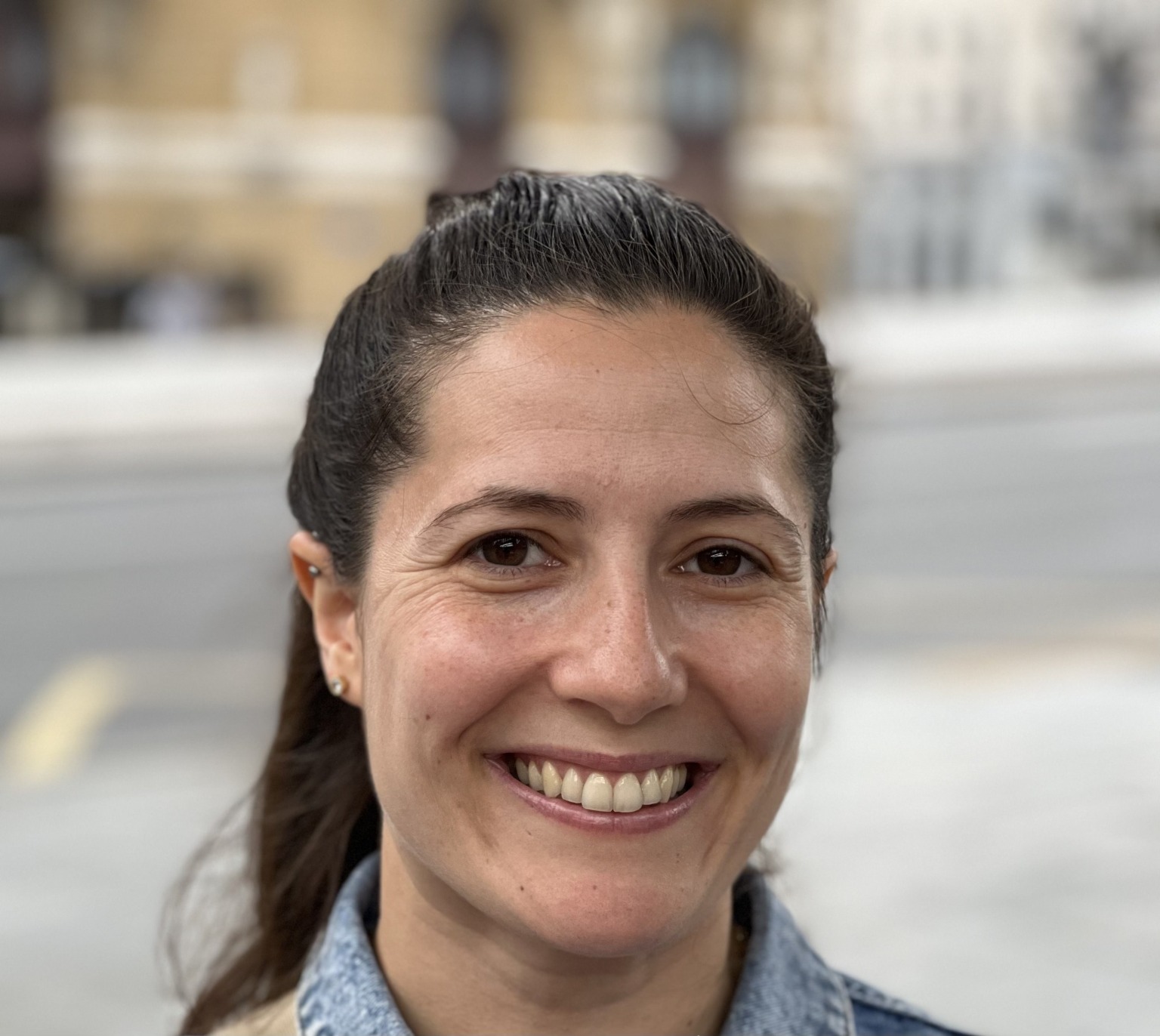
Danai Korre

Stella Telliou

Maria Koumouri